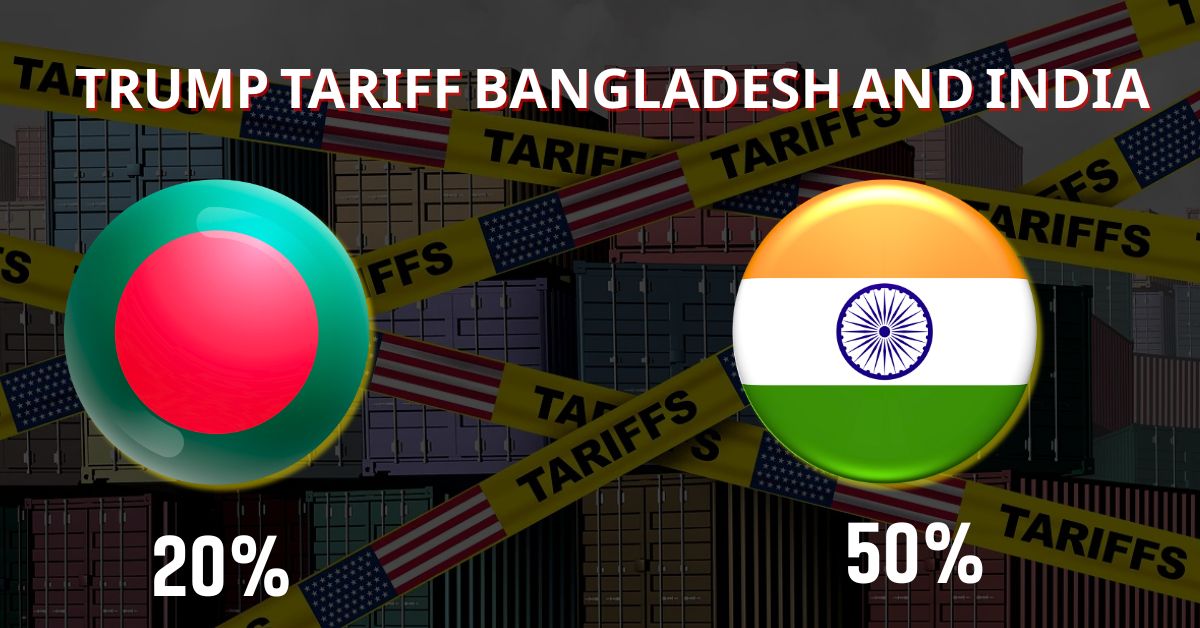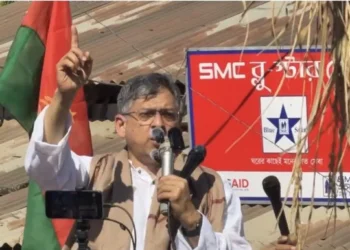The United States has recently made two very different decisions regarding tariffs on products from Bangladesh and India. While the US reduced import duties on Bangladeshi goods, it sharply increased tariffs on Indian products. These contrasting moves come during the tenure of Bangladesh’s Chief Adviser Dr. Muhammad Yunus, who is actively involved in global trade negotiations.
Bangladesh Tariff Reduced from 35% to 20%
On August 1, the White House officially announced that the import tariff on Bangladeshi products has been reduced from 35% to 20%. This decision came after the third round of trade talks between Bangladesh and the United States, held between July 29 to July 31.
Though Bangladesh still faces a 20% tariff, this is a 15% decrease, which trade experts see as a positive gesture from Washington. Talks are continuing on removing the retaliatory 35% tariff imposed earlier.
Dr. Yunus’s leadership during the negotiation is seen as a diplomatic success, aiming to improve Bangladesh’s trade advantage in the global market.
Read More: After A year, 6 Victims of July Movement Buried as Unidentified
Trump Orders 50% Tariff on Indian Products
In contrast, just a few days later, on August 6, US President Donald Trump issued an executive order to double the tariff on Indian goods, making it a total of 50%.
Trump accused India of continuing to import oil from Russia, which violates US sanctions. This decision came days after Trump had already imposed a 25% tariff on Indian products. Now, with this latest order, Indian exports to the US will face one of the highest tariff barriers.
The White House stated that the move is part of a broader effort to increase pressure on Russia and its allies. President Trump warned that if Russia does not move towards ending the Ukraine war, further sanctions would be imposed not only on Russia but also on countries maintaining ties with Moscow.
Trade experts fear this step could damage US-India relations, which are already under pressure due to failed trade negotiations.
Bangladesh vs India: A Changing Trade Landscape?
This sharp contrast in treatment of Bangladesh and India has raised important questions in the international trade community. While Bangladesh, under Chief Adviser Dr. Muhammad Yunus, is managing to secure better terms through dialogue, India is facing setbacks due to geopolitical tensions and its stance on the Russia-Ukraine conflict.
-
Bangladesh is seeing a positive shift in US trade policy.
-
India is facing increasing pressure and penalties from Washington.
“It shows how international trade policies are now more connected to global politics than ever before,” said a senior trade analyst.
Source:

















